CHIEF INVESTIGATORS
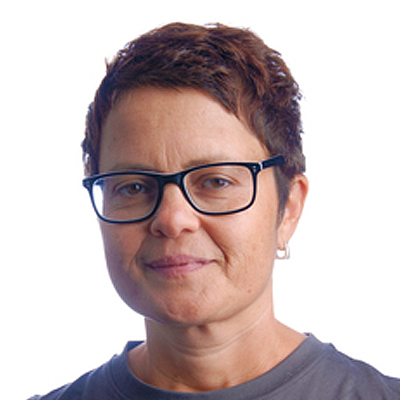
VERONICA MATTHEWS
(CO-LEAD INVESTIGATOR)
Veronica Matthews is from the Quandamooka community, Minjerribah (North Stradbroke Island) and a Wingara Mura Leadership Program Fellow at the University Centre for Rural Health, the University of Sydney. She has more than 15 years’ experience working in Indigenous health from program delivery and policy to research. She holds a PhD from the University of Queensland in environmental toxicology, has a Bachelor of Science and a Grad. Cert. (Epi) and is currently undertaking a Master of Applied Epidemiology through the Australian National University. Veronica has expertise in environmental health and Aboriginal and Torres Strait Islander health care systems research, with a particular focus on community engagement and resilience. Dr Matthews has advanced epidemiological skills, strong established networks and relationships in the Aboriginal and Torres Strait Islander health care sector and experience with facilitating grass-roots community-based participatory research.
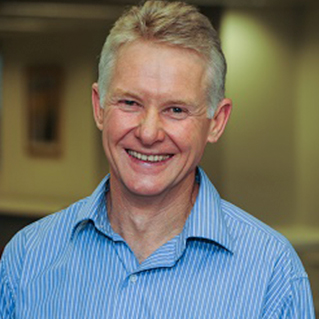
ROSS BAILIE
(CO-LEAD INVESTIGATOR)
Professor Ross Bailie is a Professor of Public Health and Director of the University Centre for Rural Health, the University of Sydney. Prior to taking up this position in late 2016 he worked for Menzies School of Health Research for almost 19 years as Professor of Public Health and Scientific Director of the Centre for Primary Health Care Systems. He has qualifications in medicine, general practice, maternal and child health, and public health, and has worked in South Africa, New Zealand and Australia. He is a Fellow of the Australasian Faculty of Public Health Medicine. Ross’ work relies on participatory processes and engagement with community-based organisations and various levels of government.
ROXANNE BAINBRIDGE
Professor Roxanne Bainbridge (Gungarri Nation) is a medical anthropologist and founding Director of the Centre for Indigenous Health Equity Research at Central Queensland University. She has a PhD Cum Laude, APA scholarship (2010), BSoc Science Hons1(Uni. Medal), Cert. II Family Wellbeing, and is studying for a Master of Social Change at University of Melbourne. Previous senior research positions were at James Cook University, co-leading a research program in Indigenous social and emotional wellbeing, at University of Queensland in Indigenous child and youth mental health, and at Queensland Health’s Remote Area Child & Youth Mental Health Service, Cape York. Roxanne has conducted research developing and implementing child and youth mental health services using collaborative methods and continuous quality improvement to embed change and maximise development and impact. Her approach is replicated in her various projects, in and beyond the health sector. She is currently using CQI in a systems approach at a national level – the largest evaluation of Indigenous PHC funding undertaken in Australia.
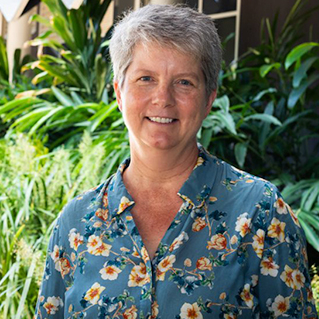
SARAH LARKINS
Professor Sarah Larkins is Dean of College of Medicine and Dentistry at James Cook University, and a part-time General Practitioner. She previously spent 12 years working in the community-controlled health sector as a GP. Sarah was awarded a Master of Public Health and Tropical Medicine in 2000 and a PhD in 2008 in Indigenous sexual and reproductive health. In 2009, she was selected from a global pool as a Brisbane Initiative scholar at Oxford University. Sarah is Co-Director of the Anton Breinl Research Centre for Health Systems Strengthening within Australian Institute of Tropical Health and Medicine. As well as strong links to the Queensland primary care, health services and Indigenous health community, she brings skills in research leadership and supervision, project management, research design, academic writing and dissemination and research translation. Her work responds to local and regional priorities and has a high degree of policy relevance and demonstrable uptake.
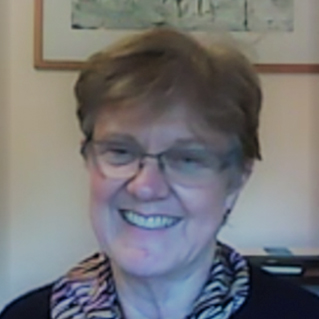
MEGAN PASSEY
Megan Passey is Director of Research at the University Centre for Rural Health (University of Sydney), and the former Director of the Australian Rural Health Research Collaboration (ARHRC) (2014–17). After seven years working with the PNG Institute of Medical Research, Megan returned to Australia to undertake research and evaluation within the health system. She then moved to academia in 2006, completed her PhD in 2014 and since then has been continuously funded by research fellowships. Megan leads a significant health services research program in the prevention and management of chronic disease, focusing on rural and Aboriginal populations in order to contribute to reducing health inequalities. Her current and recent projects include: smoking cessation by pregnant Aboriginal women; reducing tobacco harm during pregnancy, infancy and early childhood; improving smoking cessation support in routine antenatal care; reducing potentially preventable hospitalisations; improving Aboriginal maternal and child health care by increasing engagement with women’s groups in service planning; improving dementia care for Aboriginal peoples; and the economic impacts of premature retirement due to chronic disease on patients and their carers.
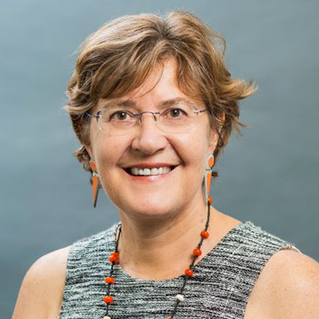
JANYA MCCALMAN
Janya McCalman is a Professorial Research Fellow and leader of the Social and Emotional Wellbeing and Mental Health Hub of the Centre for Indigenous Health Equity at Central Queensland University. She is a NHMRC Research Fellow and a Public Health Researcher. Her research has focussed on the interactions between Aboriginal and Torres Strait Islander Australians and schools, workplaces, health services and other community contexts which enable resilience, empowerment and wellbeing. Prior to her current appointment, she held research-intensive positions at James Cook University and the University of Queensland. Janya’s PhD was conferred in 2013; for this she won James Cook University Dean’s Award for Research Higher Degree Excellence. She also holds a Master of Public Health from the University of Sydney and Bachelor of Arts (Hons) from Victoria University of Wellington, New Zealand.
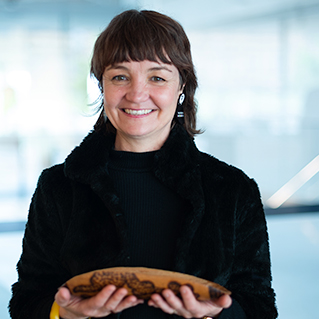
MEGAN WILLIAMS
Megan Williams belongs to the Wiradjuri peoples of central NSW, and is the Research Lead and Assistant Director of the National Centre for Cultural Competence at The University of Sydney. Megan has over 20 years’ experience working on programs and research to improve the health and wellbeing of Indigenous people in the criminal justice system. She has government and industry funding and collaborations for research, including about health service delivery, workforce development and facilitation of community driven research. For program evaluation Megan uses her Ngaa-bi-nya Aboriginal framework. Megan is Chair of the Justice Health and Forensic Mental Health Network Human Research Ethics Committee and a trained Aboriginal Family Wellbeing Program facilitator. Being active in research translation, Megan has conveyed Indigenous people’s research, stories and expertise to professional bodies, communities, parliamentarians, students and the media. Megan is Co-chair and contributing editor of health media organisation Croakey.org, and Associate Editor of Health Sociology Review.
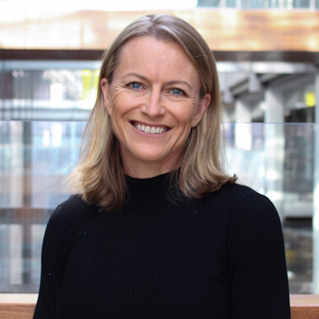
NIKKI PERCIVAL
Dr Nikki Percival is a health services researcher with a background in health promotion policy and practice. As a NHMRC Early Career Fellow at the Australian Centre for Public and Population Health Research, University of Technology Sydney, she leads and contributes to multi-method research at state, national and international levels to improve equitable access to, and delivery of best practice health promotion and preventive health care. For more than a decade, Nikki has worked alongside Indigenous primary health care services to develop, implement and evaluate quality improvement initiatives. She has worked in state government roles, as a health promotion practitioner at Queensland Health, as a Senior Policy Officer and as Manager of the Health Promotion Strategy Unit at Northern Territory Health Department. During this time, she co-produced a tobacco audit tool that has been listed as a resource in the newly released 3rd edition of the Preventive Health Guidelines for Aboriginal and Torres
CATRINA FELTON-BUSCH
A Yangaal and Gangalidda woman from Mornington Island, Catrina Felton-Busch currently lives on Kalkadoon country in north-western Queensland and works at the Centre for Rural and Remote Health, James Cook University as Associate Professor Remote Indigenous Health and Workforce. She has 20 years’ experience in Indigenous health, particularly community engagement in rural and remote Australia and workforce development with a special interest in upskilling Aboriginal Health Workers as a crucial primary health care workforce. CI Felton-Busch has a Bachelor of Arts (Monash University, 1993), Master of Public Health (JCU, 2008), Grad. Cert. PHC Research (JCU, 2012) and is currently a Doctor of Philosophy candidate, undertaking studies into her home community of Mornington Island around birthing experiences and community aspirations. Catrina is a qualitative researcher whose research interests lie within projects that provide the opportunity to be engaged in work that is aligned with her personal commitment to improving the lives of her own people. Her work is informed by research methodologies that reflect Indigenous epistemologies, ontologies and axiologies (our ways of knowing, being and doing) and advance international indigenous scholarship.
YVONNE CADET-JAMES
Professor Yvonne Cadet-James has extensive experience in the field of health and education as a registered nurse and midwife followed by an academic teaching and research career. She has experience as a principal and chief investigator on NHMRC, ARC, Lowitja Institute and other funded grants. As a qualitative researcher her interests lie in community-based models to address tobacco; maternal, adolescence and child health; social, emotional and mental health wellbeing and empowerment. She is a co-leader on the Family Wellbeing Empowerment Research Program now utilised in some 57 organisations/communities across the nation which assists people to gain the knowledge, skills and confidence to make positive changes in their lives. Yvonne has been involved in national Indigenous research reform through representation on NHMRC committees including the Principal Committee Indigenous Caucus, revision of the NHMRC national ethical guidelines for research which involves Indigenous people and the Australian Health Ethics Committee. She plays a major advisory and mentorship role in strengthening the capacity of researchers, organisations and communities; providing master classes and workshops specifically designed for Indigenous groups to set and take control of their own research agendas. As a member of the Gugu Badhun nation, Yvonne provides leadership for the Gugu Badhun Djima Research Centre activities.
ASSOCIATE INVESTIGATORS
SERVICE SECTOR REPRESENTATIVES
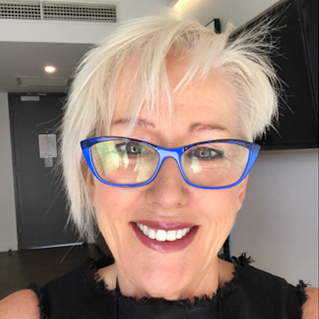
KERRY COPLEY
Kerry Copley has worked for AMSANT since 2009, developing and supporting implementation of a CQI strategy for all Aboriginal primary health care services across the Northern Territory. She has been involved in developing the National CQI Framework and the ABCD (Audit and Best Practice for Chronic Disease) Partnership. Kerry was an Associate Investigator on the Lessons from the Best Research Project and is a Chief Investigator on the LEAP (Leveraging Effective Ambulatory Practices) Research Project. She has substantial experience in primary health care management and CQI roles. Prior to AMSANT, Kerry was Deputy CEO for the Divisions of General Practice in the Northern Territory.
RENEE BLACKMAN
Renee Blackman is a Gubbi Gubbi Woman from the Sunshine Coast and her inspiration to pursue a career in health came from her grandmother. Renee has over 20 years of experience in Aboriginal and Torres Strait Islander health across a number of clinical and managerial roles including Aboriginal Health Worker, registered nurse, health service manager, and academic, including teaching and research. Formerly with the Institute for Urban Indigenous Health in Brisbane, she is currently the Chief Executive Officer of Gidgee Healing, the Aboriginal Community Controlled Health Service in Mount Isa, bringing diverse service experience from urban to remote communities. Renee holds adjunct appointments with a number of University Institutions – James Cook University, Griffith University and is a member of the National Indigenous Advisory Committee to Headspace National.
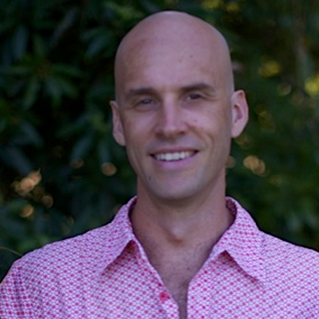
PAUL BURGESS
Dr Paul Burgess is a jointly qualified General Practitioner and Public Health Physician with 18 years of experience in remote primary health care in the Northern Territory. He is active in senior clinical governance roles in the NT and nationally, advising on significant PHC reforms. He brings to STRIDE significant skills in continuous quality improvement; data-driven health care improvement; community engagement and development; health services research and evaluation; health strategy and planning; chronic conditions care; and health workforce reform.
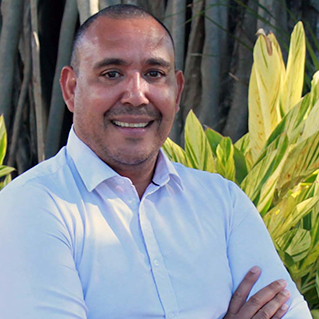
SEAN TAYLOR
Dr Sean Taylor is descendent of the Dauareb Tribe, one of the eight tribes of Mer Island in the Eastern Torres Strait region. Sean is the Executive Director Aboriginal Health Practitioner for Top End Health Service, Northern Territory Government. He has over 20 years of clinical experience in Aboriginal and Torres Strait Islander Health working at different levels across Australia in a range of academic and research areas, as well as clinical practice. His doctorate (completed 2017) provided epidemiological evidence to support development of community level interventions to address some of the most important risk factors associated with Type 2 diabetes among Aboriginal and Torres Strait Islanders in remote regions.
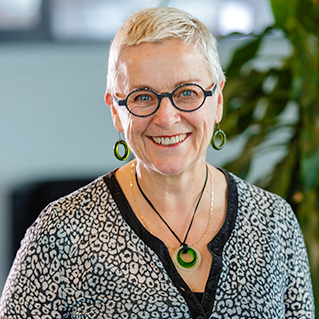
DEB ASKEW
Associate Professor Deb Askew is a Conjoint Associate Professor, General Practice Research at the Primary Care Clinical Unit, University of Queensland, and Research Strategic Lead, Southern Queensland Centre of Excellence in Aboriginal and Torres Strait Islander Primary Health Care (formerly Inala Indigenous Health Service – IIHS). She was previously the inaugural Research Director at IIHS for seven years and grew the research program from five projects to more than 30, including two NHMRC-funded multisite RCTs investigating ear health for Indigenous children. Deb assisted to establish the Inala Community Jury for Aboriginal and Torres Strait Islander Health Research, and the ongoing facilitation of this research reference group.
SYSTEM AND CAPACITY STRENGTHENING EXPERTS
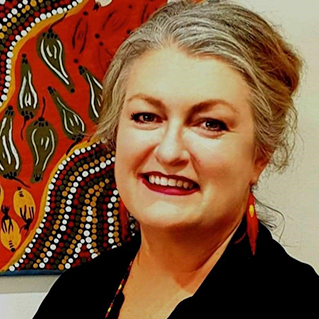
MICHELLE DICKSON
Associate Professor Michelle Dickson is a Darkinjung/Ngarigo (NSW) academic in the School of Public Health at the University of Sydney, and has worked in Indigenous health service delivery and health professional education for 25 years. She is Program Director of the Graduate Diploma in Indigenous Health Promotion program for Indigenous health professionals, and the Director of Teaching and Learning in the School of Public Health. Michelle is a Chief Investigator on the NHMRC funded CRE Partnership ‘Pathways to Better Care and Outcomes for Aboriginal Young People’ and has national and international collaborations in Indigenous health. Her local network includes communities and health services in most states and territories, across government, non-government and community-controlled sectors.
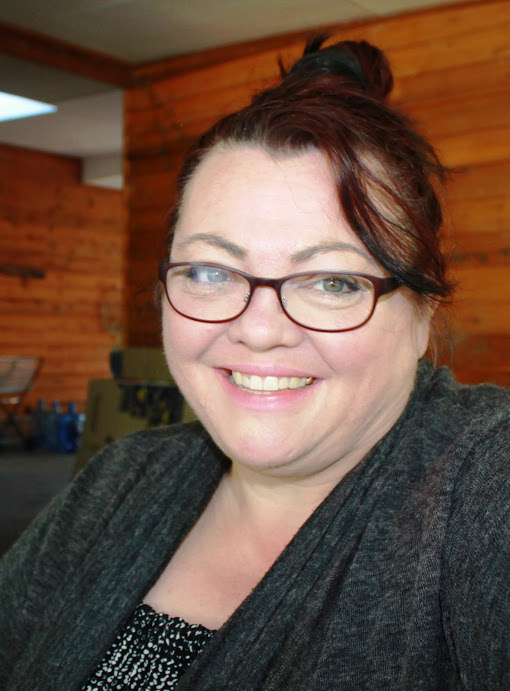
EMMA WALKE
Emma Walke is a Bundjalung woman from the Ballina, Cabbage Tree Island areas of Northern NSW. In her combined roles as academic lead of Aboriginal Health Education at the University Centre for Rural Health and Head of Indigenous Health – Sydney Medical School, both at the University of Sydney, Emma works with medical and allied health students from New South Wales, Queensland and Canberra to impress the importance of understanding, care, listening and non-judgment when providing health care services to Aboriginal and/or Torres Strait Islander people. She has worked on over 22 research and evaluation projects since 2011, and has completed a Master of Philosophy (Med), studying the experience of Aboriginal and or Torres Strait Islander peoples use of DAAs on the North Coast of NSW.

CANDACE ANGELO
With a distinguished career spanning 20 years in health and wellbeing, Candace is a renowned registered nurse and clinical nurse specialist. Her expertise extends far beyond extensive clinical skills, additionally delving into the intricate realms of cultural training and health service delivery. This proficiency positions her as a trusted bridge between varied cultural contexts and the healthcare system, ensuring optimal patient care and understanding.
Candace’s academic accomplishments are testament to her commitment and passion for healthcare. She holds multiple qualifications in nursing, with specializations in child and family health, paediatrics, critical care, and health promotion to name a few. More notably, her higher degree research illuminates the significant role of mentoring in fostering the growth and retention of Aboriginal and Torres Strait Islander health and wellbeing professionals. Through her studies, she has explored and emphasized the transformative impact of mentorship as a pivotal enabling factor, advocating for its strategic implementation in healthcare settings.
Above all, Candace’s endeavours embody her dedication to creating a more inclusive, culturally-aware, and patient-centric healthcare environment for all.
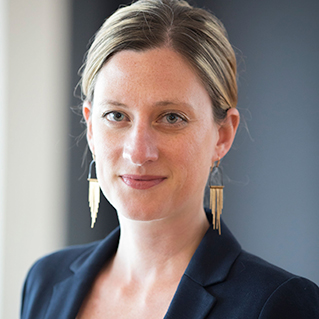
KATHLEEN CONTE
Kathleen Conte is an Adjunct Faculty member with the University Centre for Rural Health, the University of Sydney, and member of the Menzies Centre for Health Policy, where she conducts research and consults with policy makers in Australia and the World Health Organization on large-scale implementation of preventive health policy. She is currently a Clinical Assistant Professor at DePaul University in Chicago, IL, and lives in Portland, Oregon. She is an emerging expert in the application of systems theories and methodologies in preventive health and is a named investigator on the successful renewal of the $15 million NHMRC-funded Australian Prevention Partnership Centre. With considerable experience with participatory action research, in both Australia and the United States, she brings international collaborations with American Indian tribes and researchers in the US to STRIDE.
ECONOMIC AND IMPACT EVALUATION EXPERT
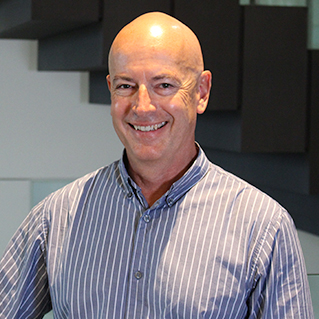
ANDREW SEARLES
Professor Andrew Searles is both an Executive Manager and Leader of the health economics team at the Hunter Medical Research Institute. After being awarded his PhD in 2010, Andrew made the transition to academic in 2013 from employment in industry as an economist and Director of Research in a private sector research role. A major component of Professor Searles’ research effort focuses on impact assessments. Specifically, this has entailed the development of a framework to measure research translation and research impact. This framework is being used in funded NHMRC Centres of Research Excellence. This work builds on his PhD where he designed and implemented an impact framework to capture the flow-on effects from a major trade agreement with potential impacts on the Australian Pharmaceutical Benefits Scheme (PBS). Professor Searles has presented his work nationally and internationally, and has actively contributed to policy in Australia through invited briefings for Federal Parliamentarians on the PBS and other economic issues.